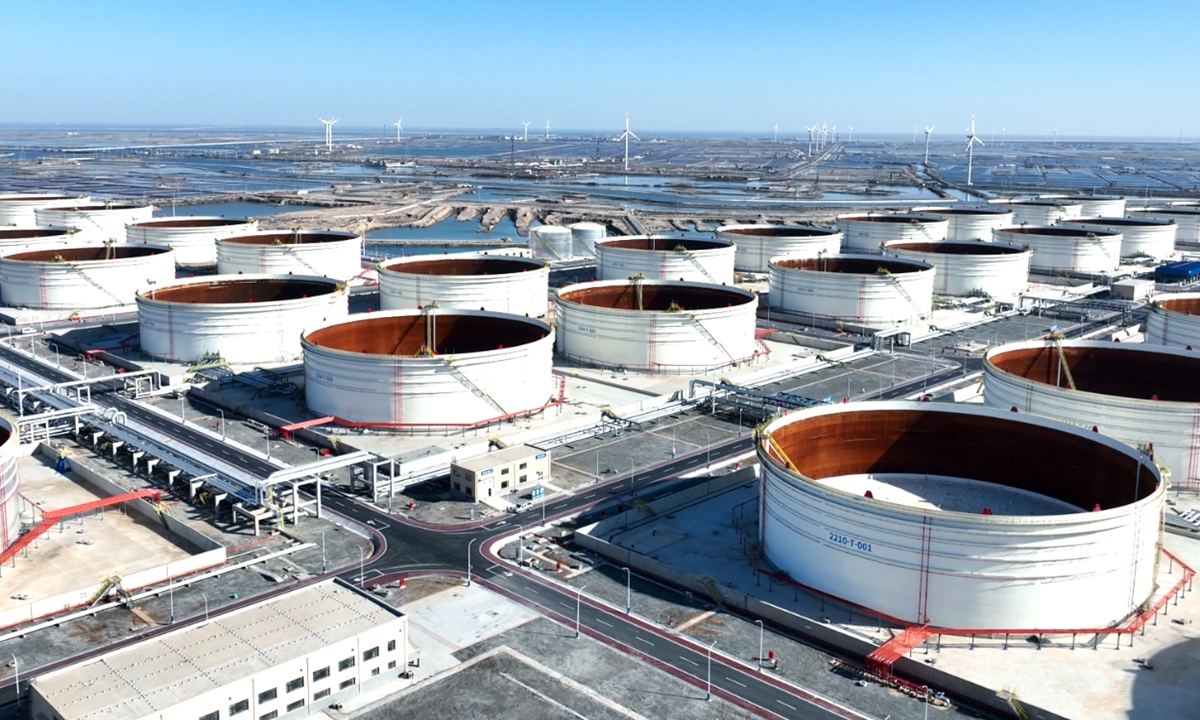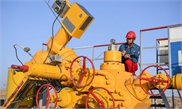CNOOC starts building China's largest commercial underground oil reserve, to cost 3 billion yuan

CNOOC's Dongying crude storage facility in Dongying, East China's Shandong Province Photo: Courtesy of CNOOC
China's largest commercial underground oil reserve project, backed by China National Offshore Oil Corporation (CNOOC), has started construction in Ningbo, East China's Zhejiang Province, according to media reports on Saturday.
The Daxie commercial oil reserve, designed with a capacity of 3 million cubic meters, will receive a total investment of nearly 3 billion yuan ($420 million). It is scheduled to be completed by 2026, China Energy News reported.
After completion, it will provide a stable supply of crude oil to cities and provinces in East China and along the Yangtze River. The project holds significant importance for further promoting development of local economies, addressing any unexpected events in energy supply, and also enriching the digital transformation practices in the energy industry.
The project has been independently designed and constructed by CNOOC. It encompasses 3 million cubic meters of underground crude oil caverns, along with surface crude oil storage, transportation, and the supporting facilities. The underground crude oil caverns are able to operate maintenance-free for as long as 50 years.
Currently, China's commercial petroleum reserves primarily employ two methods: surface storage tanks and underground water-sealed caverns. In comparison to surface tanks, underground water-sealed caverns are generally constructed at a certain depth below the surface, ensuring their safety and reliability.
The approach also reduces construction costs by approximately 20 percent, and operating costs by around 50 percent, in addition to saving approximately 950 mu (63 hectares) of land for an oil storage facility of equivalent capacity.
Beyond the physical project, a "virtual twin factory" will start construction at the same time. It aims to build an intelligent factory using cutting-edge technologies such as AI video recognition, Virtual Reality (VR) for automatic detection of any oil and gas leaks.
Liu Daping, chairman of CNOOC Import and Export Co, stated that, after the completion of the project, it will facilitate the rapid storage, processing, and turnover of imported crude oil.
Global Times

